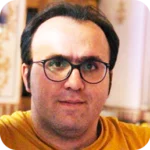
Editor-in-chief and Author
Nima Asefi is a Ph.D. student in ancient Iranian languages at the Institute of Humanities and Cultural Studies, Tehran. In 2022, he began his studies as a guest researcher at Leiden University. His research interests include Middle and Early New Persian, as well as the history of Iran in late antiquity. His dissertation focuses on several Middle Persian documents from the first century after the Sasanian, named the Hastijan's Pahlavi Archive. Since January 2023, he has been working on the project "A City of Many Cities: Ctesiphon, Baghdad, and the Memory of the Abandoned Past in Late Antique and Early Islamic Iraq," led by Dr. Khodadad Rezakhani. He is the founder and director of Azhyar association of Ancient Iranian Languages.

Editor-in-chief and Author
A Ph.D. candidate in Iranian Studies at the University of Hamburg. His research focuses on historical linguistics, Persian and Mazandarani literature and languages. He earned his Master of Arts from the University of Tehran (2017-2020), focusing research on the historical grammar and phonology of the Tabari language. Meanwhile, he attends an Erasmus+ Fellowship in Bologna under Prof. Dr. Panaino (2020). His current research as a Ph.D. candidate centers on a comprehensive survey of Mazandarani poems attributed to Amir Pazevari.
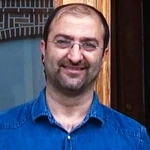
Editor
Hossein Sheikh, Ph.D (2017), Georg-August University, Göttingen, is an assistant professor of History and Iranian Studies at the University of Isfahan. He has published articles on, history and legal practice in ancient Iran and Central Asia, particularly on legal terminology and slavery.

Editor
Mehrak-Ali Sabounchi holds a MA and PhD in Ancient Iranian Culture and languages, and earned a BA in Persian Language and Literature. His master's thesis is titled "Comparative Study of the Structure of the Avestan Text of Khorshid-Niyayesh, Mehr-Niyayesh, and Atash-Niyayesh and their Middle Persian Translation Version" (2013) and his Ph.D. thesis is titled "Word Order in Some Manichean Sogdian Prose Texts (The Story of Two Snakes, Sogdian Tales, Manichean Cosmogony, The Sermon of The Light Nous, The Sermon of The Soul, Xwāstwānīft)" (2019). In the realm of Iranian language studies, his research is primarily centered on the Sogdian language. He has authored articles on this language and is actively involved in teaching it. In the domain of culture and mythology, his expertise lies in Iranian demonology. In 2019, he published the book The Treatise of a Hundred Demons (Resâle-ye Sad Div). Additionally, another book on demonology titled Divân-e Div (Encyclopaedia of Iranian demons) is set to be released soon. Focusing on Iranian culture and literature, he has published two books under the titles The Mouse and the Cat (Resâle-ye Mush va Gorbeh) concerning Obeid Zakani's work in 2018, and Love and Lovers (Resâle-ye `Eshq va `Âsheqi) showcasing twenty love stories of Persian literature in 2022. Moreover, he places great emphasis on educating children and adolescents about Iranian mythology. Currently, he is researching and working on the project "Collection of Mythological History of Iran for Teenagers" with two published volumes: Volume 1: One was and one was not, Hormozd was and Ahriman was not (The Story of Creation) (2023) and Volume 2: The Existence of the Gods and the Non-Existence of the Demons (The Creatures of Light and Darkness) (2024).
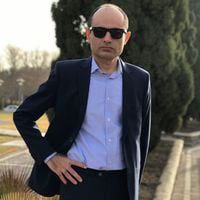
Editor
Yaser Malekzadeh earned his Ph.D. in Pre-Islamic Iran History from Tehran University in 2017. Since 2020, he has been a visiting researcher at Ferdowsi University of Mashhad, engaging in both research and teaching. His scholarly interests encompass comparative literature, identity, memory, cultural history, historiography, and historical geography in Pre-Islamic Iran. For access to his academic articles, visit his profile on https://mashhad.academia.edu/YaserMalekzadeh.
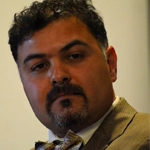
Editor
Khodadad Rezakhani is a historian of late antique and early medieval Near East at Leiden, concentrating on the history of the Sasanian and early Islamic empires. He currently leads the project A City of Many Cities: Ctesiphon and Baghdad, funded by the Gerda Henkel Stiftung, studying the transition period between the Sasanian and the Abbasid period from the viewpoint of the history of the Ctesiphon city complex. He is the author of "ReOrienting the Sasanins: East Iran in Late Antiquity" (Edinburgh UP, 2017) and Upcoming co-edited “Companion to War in Ancient Iran (2024)”.

Editor
Nima Jamali is a FRQSC (B3Z) postdoctoral research fellow at NELC, The University of Chicago. He earned his Ph.D. in 2021 from the Department of Near and Middle Eastern Civilizations (NMC) at the University of Toronto. His dissertation was a comparative study of the interactions among Zoroastrian, Jewish, and Roman legal systems during the 7th and 8th centuries. It was based on an edition, commentary, and English translation of a Syriac legal text, Išō‛-boḳt’s Corpus Juris. His primary focus is on the history of law and historical linguistics of the Middle East and the Mediterranean world in late antiquity. In his current position, he is working on a monograph titled Statute of Limitations: A History of Legal Thought and Tradition in the Church of The East (480–850 CE). His other research interests include early modern legal archives, including the institution of Daftar-khāneh and its role in modern Iranian urbanism and everyday life. Additionally, he is investigating the perceptions of "the past" among early modern Iranian intellectuals and how it shaped their idea of self, Iranian identity, and political ideals. His articles have appeared in several journals, including "The Foundations of Legal Thinking in the Church of the East during the Fifth and Sixth Centuries CE" and "Nāmag, a Brief Study on its Etymology and Semantics" in Iran Namag; "A Note on a Lacuna in Išō’-bokt Corpus Juris: Greek Philosophy in Eastern Syriac Legal Literature," and "The Sixth Book of Išō’-bokt Corpus Juris, Authority, Enforcement, and Language" in the Journal of the Canadian Society of Syriac Studies; "Semitic Sources in Sasanian Studies and Vice Versa: One New Approach" inGozaresh-e Miras; and "From Inshushinak to Jackson Pollock, Continuity and Transformation, Decline and Survival in E. Yarshater’s Thinking" in Herfe: Honarmand.
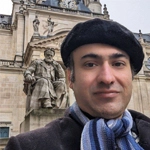
Editor
Bahram Roshan Zamir is a Ph.D. student in the History of the late antique Near East at the École Pratique des Hautes Études, Sciences religieuses, Paris. Since 2021, he began his studies at the Laboratoire d'études sur les monothéismes, CNRS. His dissertation focuses on the representation of Zoroastrianism under Sasanians in the Syriac martyr acts of Iran. He has written several articles on the representation of Iran and Iranians in the Greek-Roman-Christian sources.

Editor
Elahe Amirpour, currently pursuing an MA in Manuscript Cultures at Hamburg University, Germany (2023-2024), completed her first MA in Iranian Old Languages and Cultures at Tehran in 2018. Her research is multifaceted, with a primary focus on the evolution of the Persian language, particularly during the formative period of New Persian. In addition to her linguistic inquiries, Elahe delves into the religious history of the Zoroastrian community in Sistan following the Islamic invasion, aiming to understand how this pivotal historical event influenced their language and culture. Elahe's research also encompasses the study of early translations of the Quran, specifically the "Quran Quds," which exhibit vernacular features reflecting the linguistic characteristics of Zoroastrian communities in Sistan. Furthermore, Elahe explores the language of the Iranian Jewish community, recognizing its significant role in shaping the development of New Persian. By examining the linguistic contributions of these diverse religious communities, her research provides valuable insights into the formation of the Persian language and the socio-cultural fabric of Iran's history.
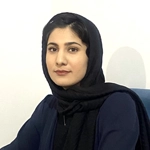
Editor
Saeedeh Amirpoursaeed holds a bachelor's degree in English Literature and a master's degree in Ancient Iranian Languages from Shiraz University. She has conducted research in the field of documenting local dialects. Amirpoursaeed's primary focus is studying and analysing the Yashts, Vendidad and examining Avesta manuscripts, particularly those written during the Qajar era.
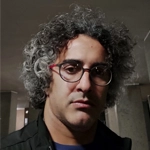
Editor
Mohammad Keshavarz Divkolaee. His scientific activities focus on archaeological, architectural, and chemical analysis of constituent materials at the sites in the Savadkooh region of Mazandaran province, in the central Alborz Mountains. he completed studies in the field of restoration and conservation of historic buildings in 2007-2011. In 2021,as well, he completed bachelor's and master's degrees in the technologies for the protection of cultural heritage at Sapienza University of Rome. He officially became a member of the ISMEO– The International Association for Mediterranean and Oriental Studies in Rome, Italy and he has been officially a member of the ICTA- ICOMOS- Iranian scientific committee on Troglodyte architecture.
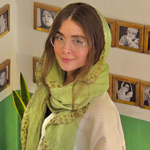
Editor
Shahrbanoo Moosakhani is a researcher in Ancient Iranian History and a graduate with a Master’s degree in Ancient Iranian History from the University of Tehran. Her research primarily focuses on the religious, social, and environmental interactions of the Sasanian era. She has published several articles, including “The Position of Women in National Narratives,” “Zoroastrians’ Attitudes toward Animals,” and “The Social Situation of the Christians of the Eastern Church in Relation to the Sassanid Court (338–421 AD).” These works examine the influence of historical narratives on social and religious identities. Shahrbanoo Moosakhani has been honored with the Shapoorji Pallonji Scholarship in Zoroastrian Studies and the International Postgraduate Scholarship at SOAS, which attest to her commitment to advancing the field of Ancient Iranian Studies.

Editor
Shayan Javadi is a literary translator and holds a master's degree in Ancient Iranian History from Shahid Beheshti University in Tehran. He is an Ossetologist and has worked on the national epics of the Ossetian people and the Ossetian religion for more than fourteen years. His other interests include Icelandic and Spanish.
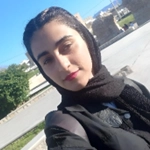
Editor
Graduate of the Master of Archaeology from the University of Tehran and a PhD student in Archaeology, Prehistory, Tarbiat Modares University. Main research area: Paleolithic Iran and Southwest Asia, focusing on stone tools and experimental archaeology. Currently, member of the joint Iran-France excavation team at the Paleolithic cave of Qaleh Kurd in Qazvin, led by Dr. Hamed Vahdati Nasab and Gilles Berillon.
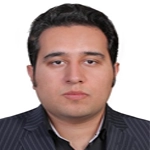
Editor
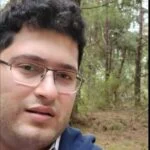
Editor
Alireza Arabani holds an M.A. in Ancient Iranian Languages from the Shahid Beheshti University of Tehran. His M.A. thesis was entitled "Explanation and Analysis of the Structure of the Cosmos in Manichaean Cosmology Based on Middle Persian, Parthian, and Sogdian Texts" (September 1401), which won the Fravahr Award in March 1402. His field of research is working on Middle Iranian Manichaean manuscripts, Manichaean cosmology, and hymnology. His paper entitled "The Four Walls and Three Moats in Manichaean Cosmology" was presented at the Mani in Cambridge 3 Symposium (May 2024).

Editor
Mostafa Nabavi Chashmi holds a master’s degree in archaeology from the University of Tehran and is currently a PhD student at the University of Mazandaran. He focuses on the socio-political developments of the Sasanian and post-Sasanian periods, particularly in the northern regions of Iran and the Alborz Mountains. His academic and fieldwork experience includes participation in the excavation of the Mersin Chal cemetery in 2021, led by Dr. Ata Hassanpour, and again in 2022, led by Dr. Mohammad Reza Nemati. Additionally, he contributed to two excavation seasons in 2023 and 2024 at the Zel Hastijan cave site, led by Dr. Mohammad Reza Nemati.
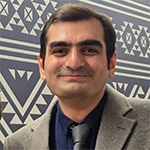
Editor
Meysam Saebi is a Shapoorji Pallonji scholar of Zoroastrianism and a postgraduate student in Religions and Philosophies at the SOAS, University of London. He graduated with a master's degree in Ancient Iranian Languages and a bachelor's degree in Archaeology from the University of Tehran. Currently, he is working on 'The Ahuna Vairiia and a Gathic Liturgical Archetype: The Ahumaṇt Ratumaṇt' under the supervision of Professor Almut Hintze.
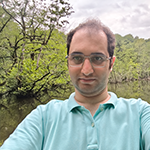
Technical Manager
Ali Khakbaz is responsible for the technical support of the site. He is currently a PhD student in Information Technology Engineering at the University of Tehran.